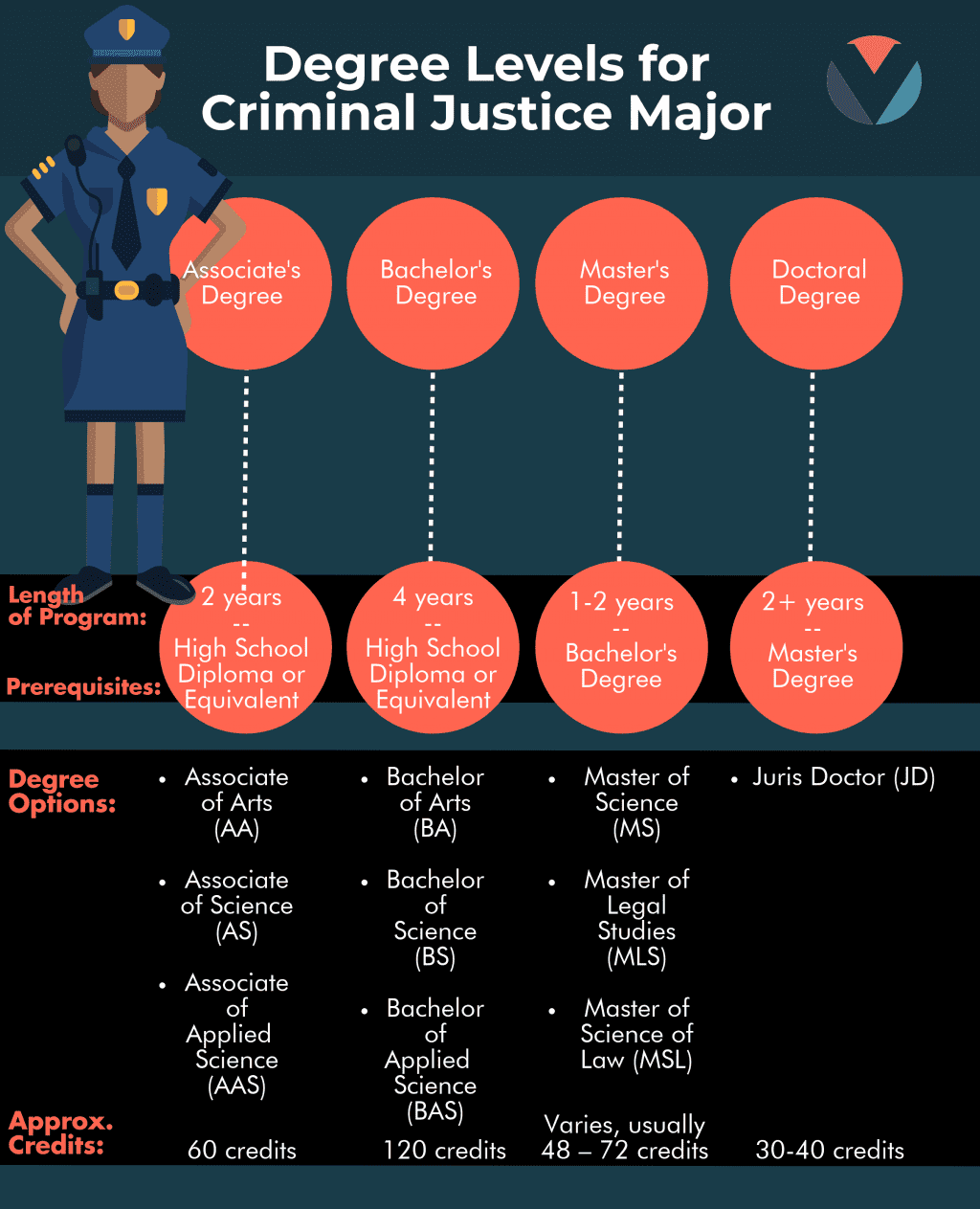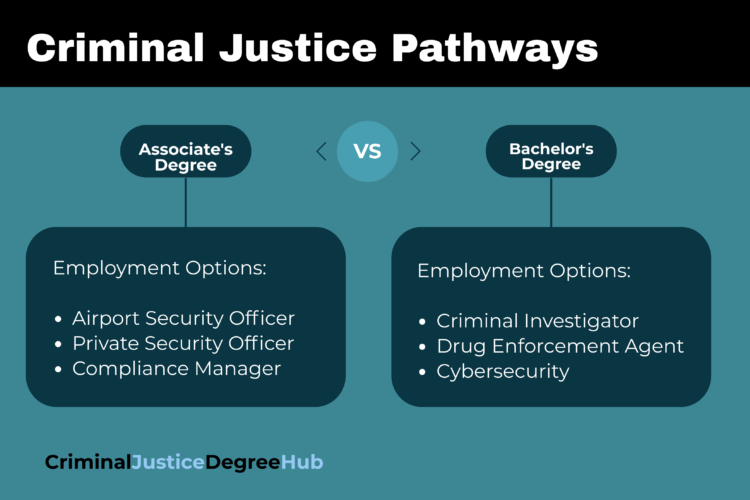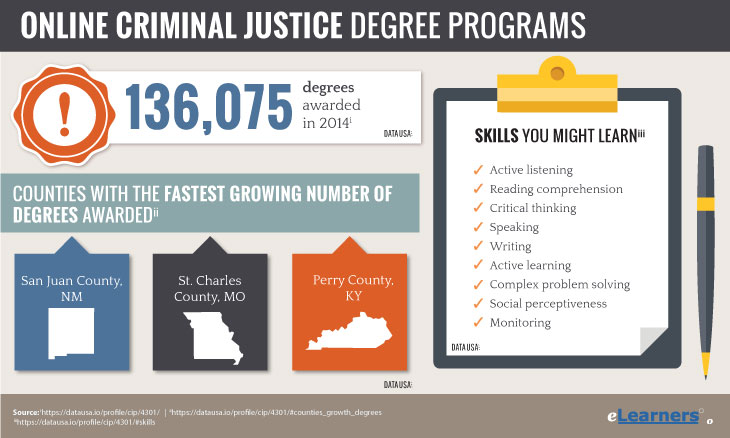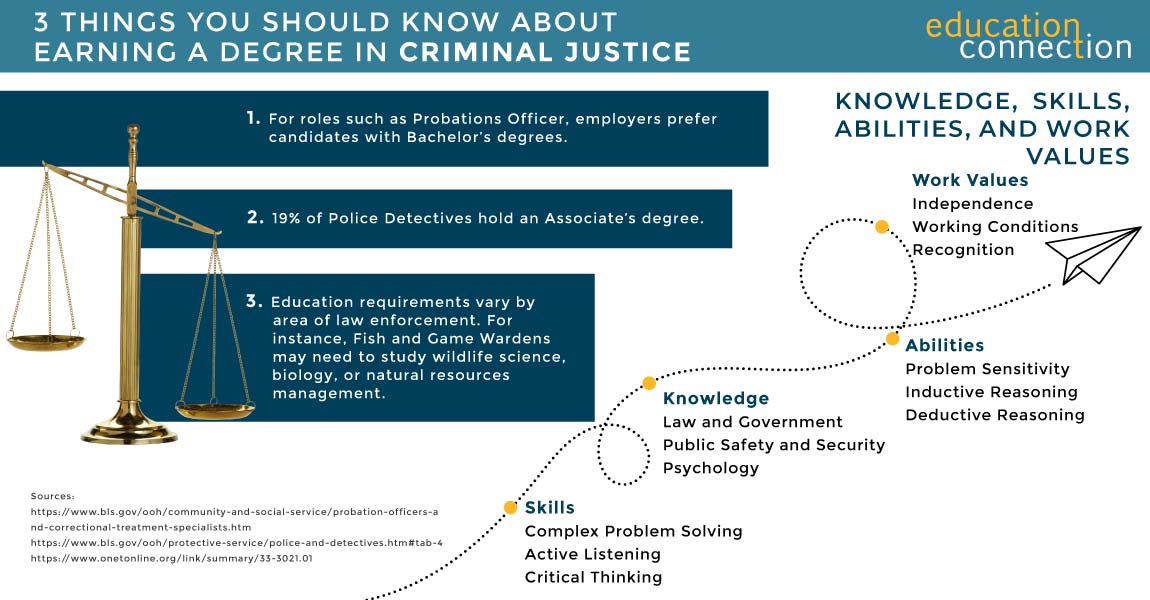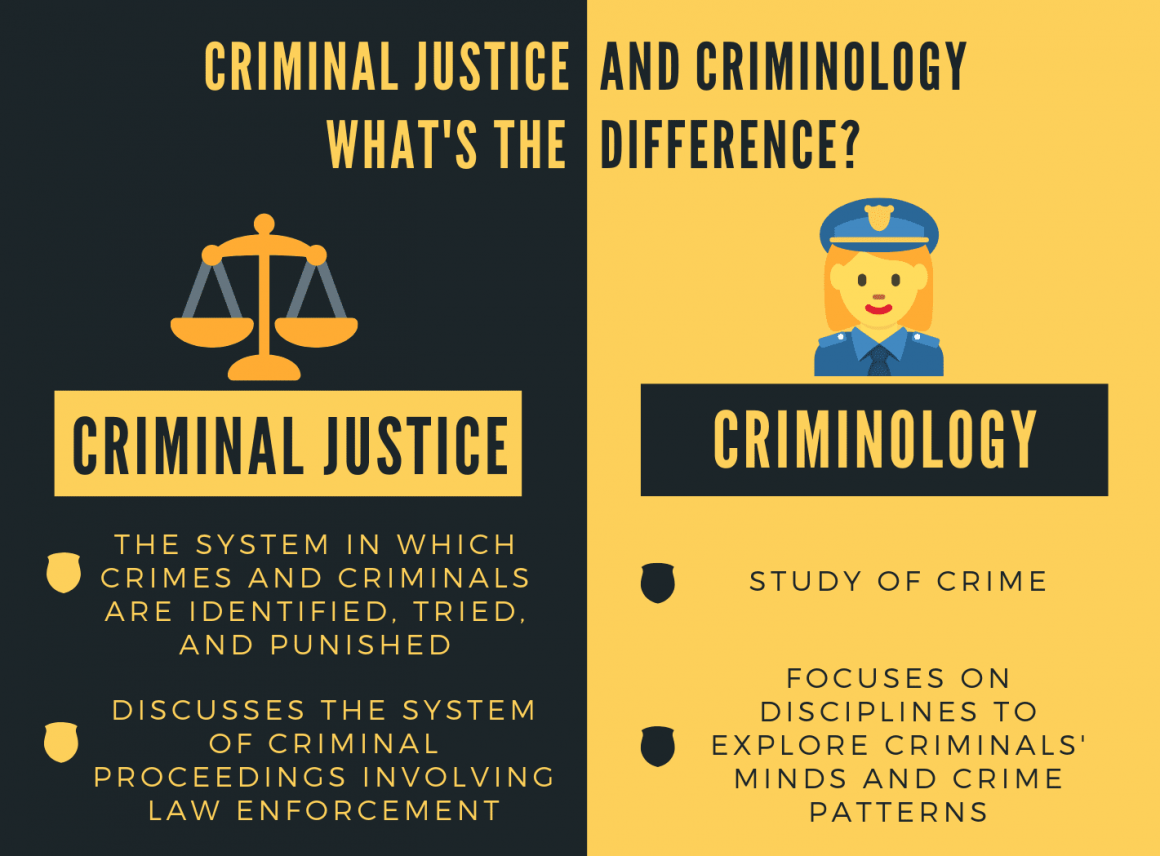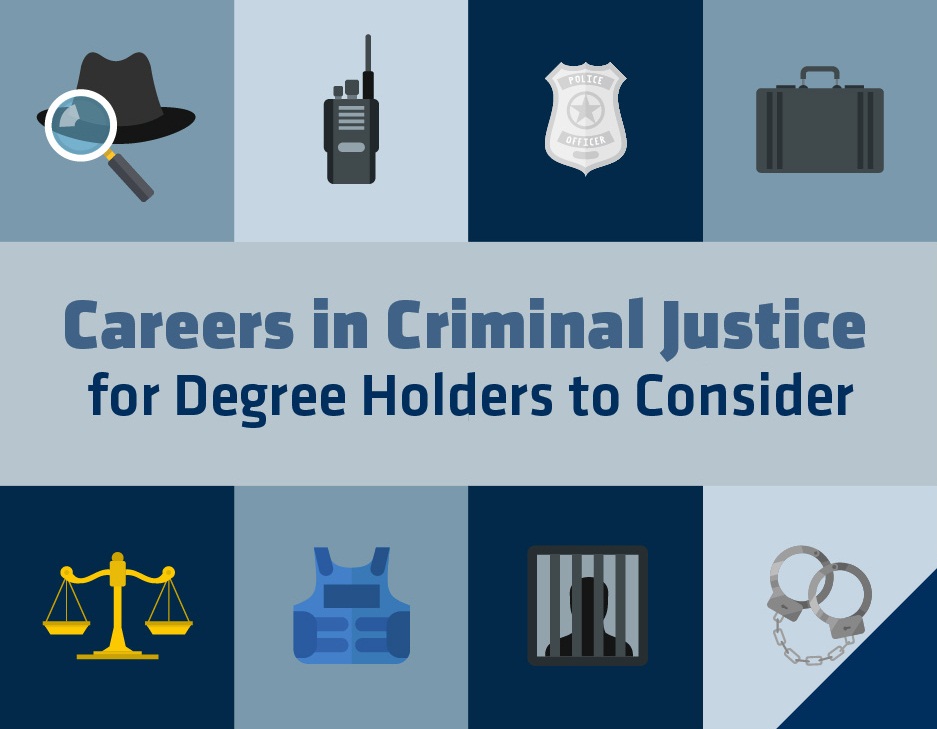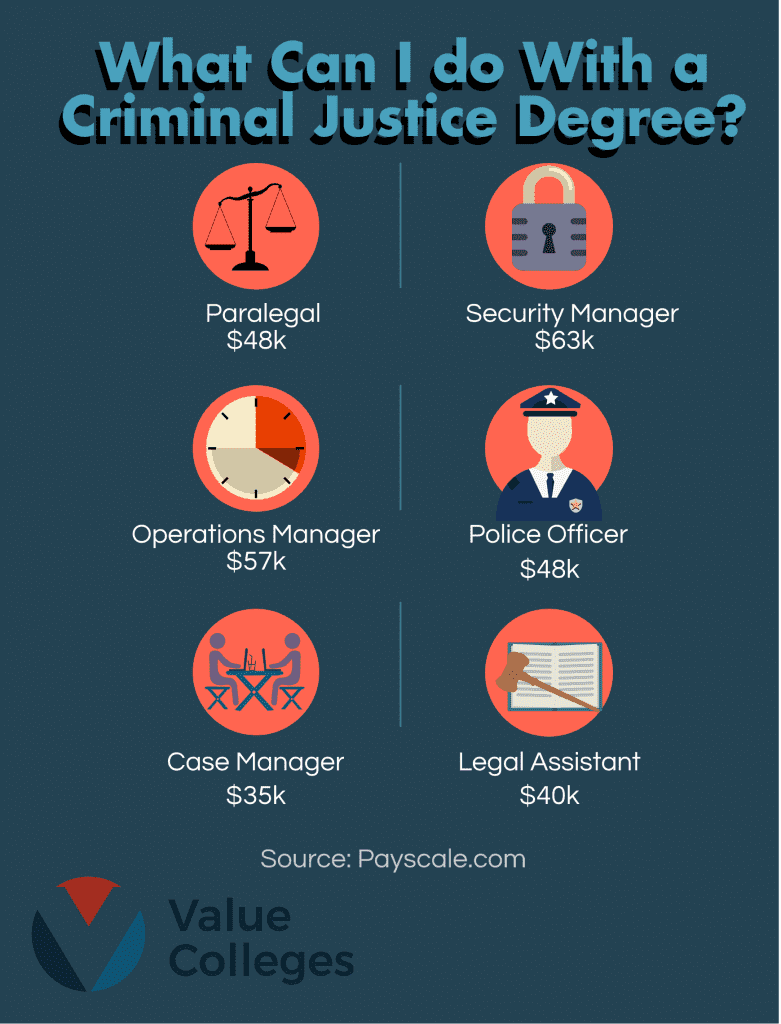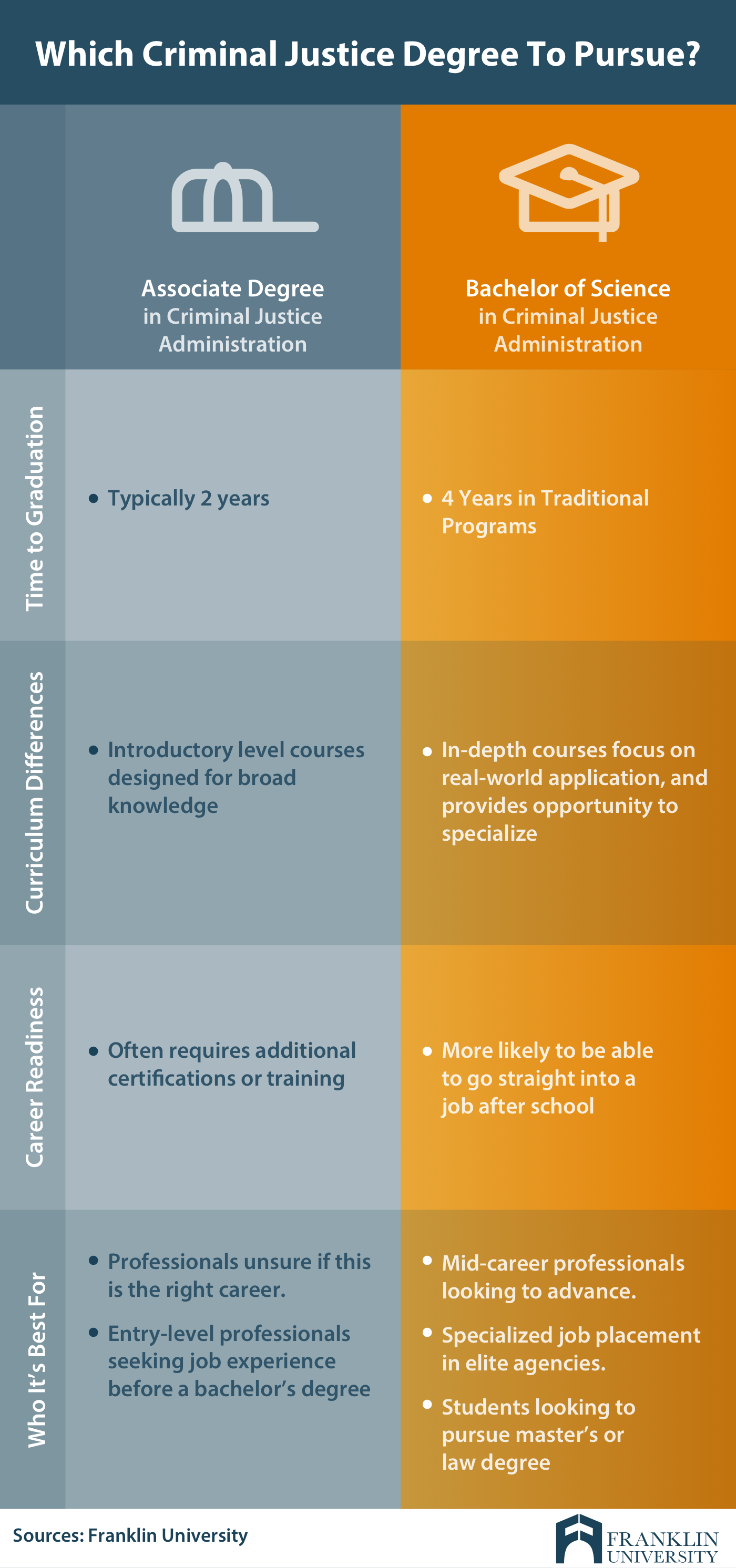How Long To Get A Criminal Justice Degree

Aspiring to a career in criminal justice? Your timeline hinges on degree choice and study pace. Here's a breakdown of the educational commitment required to enter this field.
This article delivers critical information on the duration of various criminal justice degree programs. It offers a roadmap to help prospective students plan their educational journey, avoid delays, and efficiently achieve their career goals.
Associate's Degree: Your Fastest Track
An Associate of Arts (AA) or Associate of Science (AS) degree in Criminal Justice is often the quickest route. Typically, this requires around 60 credit hours.
Full-time students can complete it in approximately two years. Part-time study naturally extends the timeframe.
Expect core courses covering the fundamentals of law, criminal procedure, and criminology.
Bachelor's Degree: The Standard for Advancement
A Bachelor's degree is generally considered the standard for many positions and advancement opportunities. It typically demands 120 credit hours.
Full-time students usually finish within four years. Accelerated programs can potentially shorten this duration, while part-time schedules will lengthen it.
Curricula dive deeper into areas like criminal law, corrections, and the juvenile justice system.
Electives often allow specialization in areas like forensic science or cybersecurity.
Master's Degree: Specialization and Leadership
Earning a Master's degree is often essential for leadership roles and specialized areas. These programs usually need between 30 and 60 credit hours beyond a bachelor's degree.
Expect a one to two year commitment for full-time students. Part-time options are common for working professionals.
You’ll likely specialize in areas like criminal justice management, homeland security, or forensic psychology.
Doctoral Degree: Research and Academia
For those seeking research-intensive or academic careers, a Doctorate (Ph.D.) is necessary. This represents the highest level of education in the field.
Completion times vary significantly, often taking four to seven years *after* a bachelor's degree, including dissertation research.
Expect rigorous coursework, comprehensive exams, and an original research project.
Factors Affecting Completion Time
Several factors can influence how long it takes to complete your degree.
Transfer credits from previous institutions can significantly shorten your program.
Online programs can offer flexibility but require self-discipline and time management.
"Consider your learning style and available time when choosing your program format."
Life circumstances, such as work or family responsibilities, might necessitate a slower pace.
Accreditation Matters
Always choose an accredited program to ensure your degree is recognized and respected. Accreditation validates the quality and rigor of the program.
This impacts your career prospects and potential for further education.
Next Steps
Research accredited criminal justice programs aligned with your career goals.
Contact admissions advisors to discuss your prior education and create a personalized timeline. Act now to secure your future in criminal justice.
Monitor official program websites for updates on curriculum, admissions requirements, and accreditation status.
